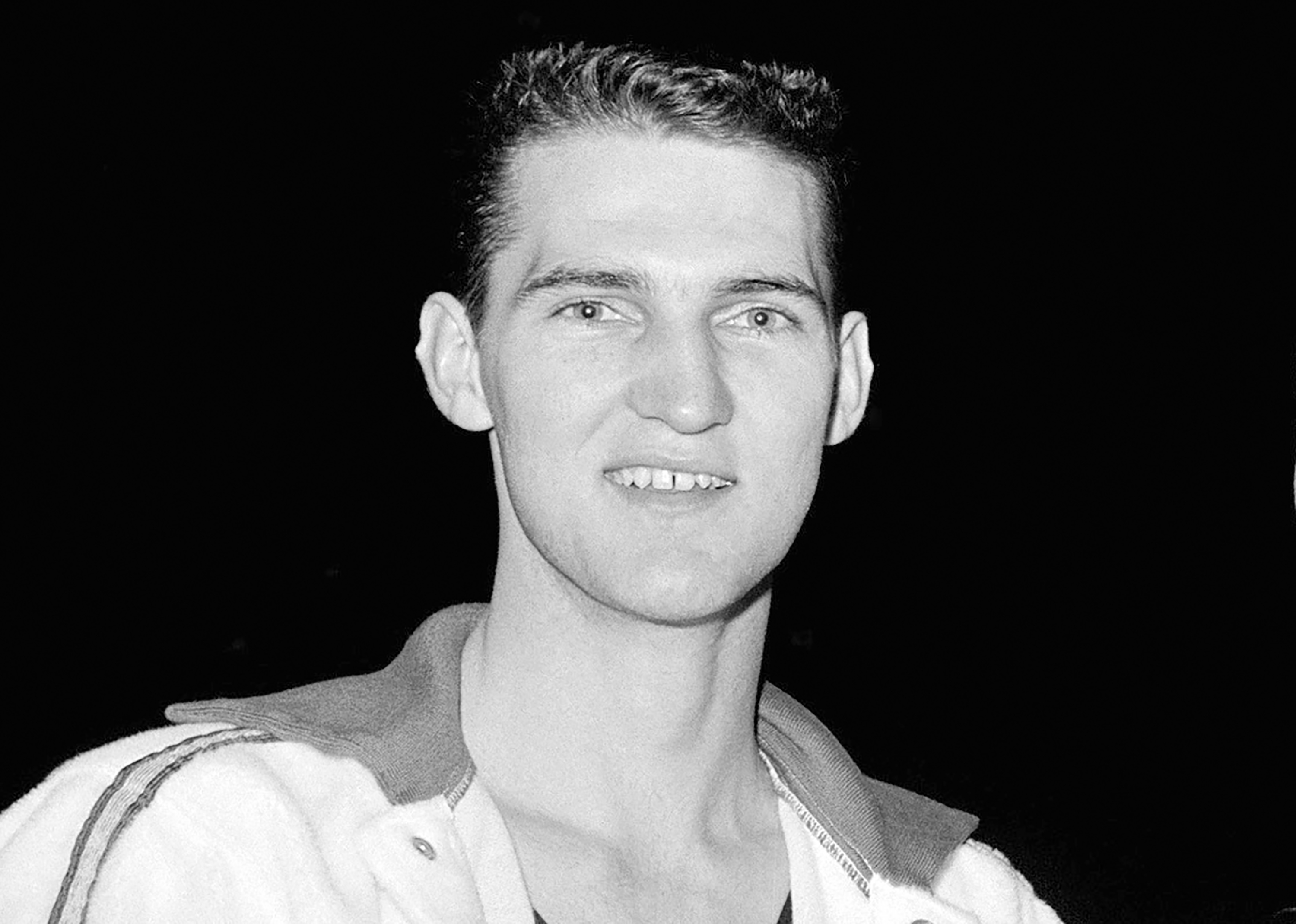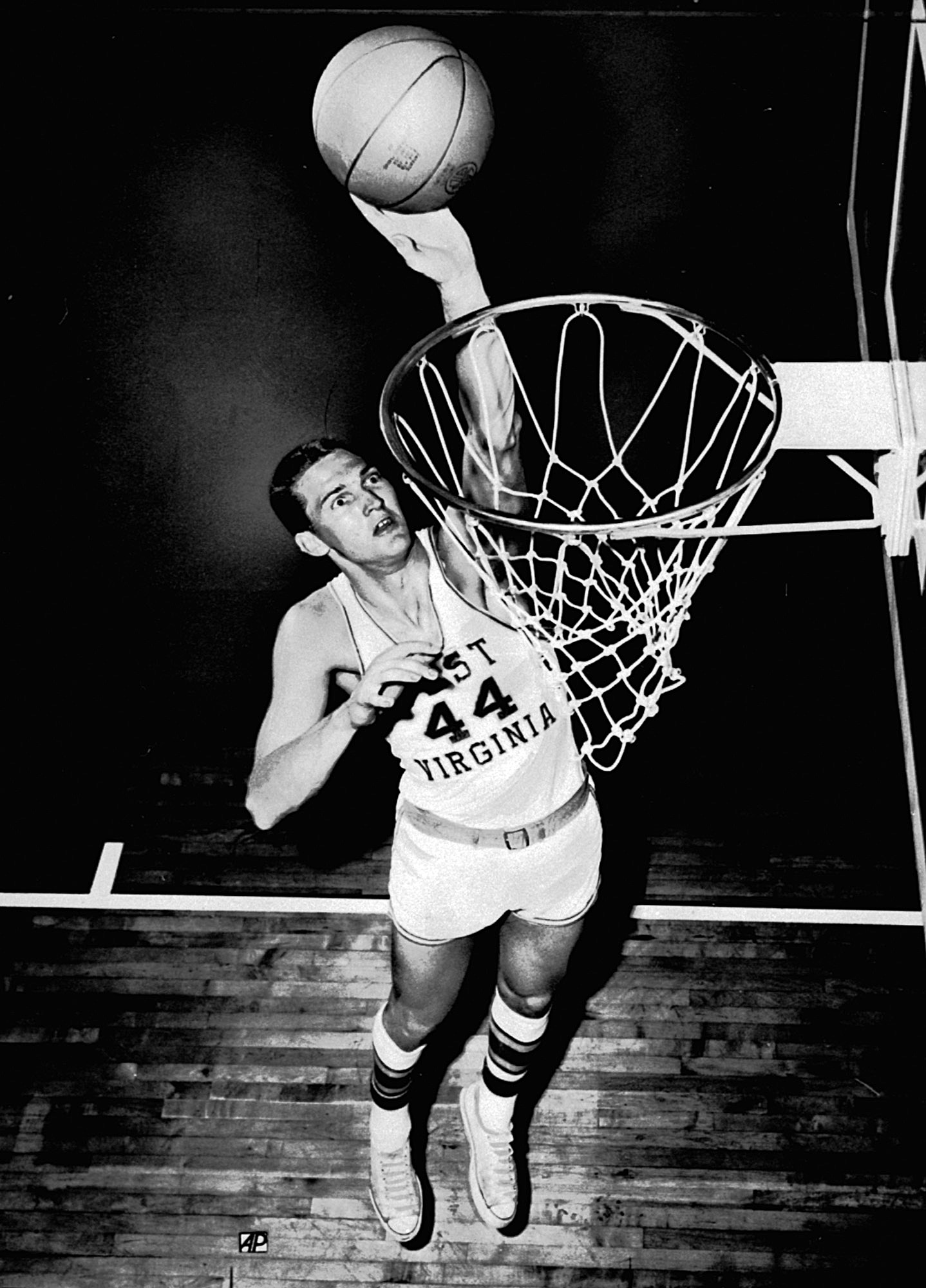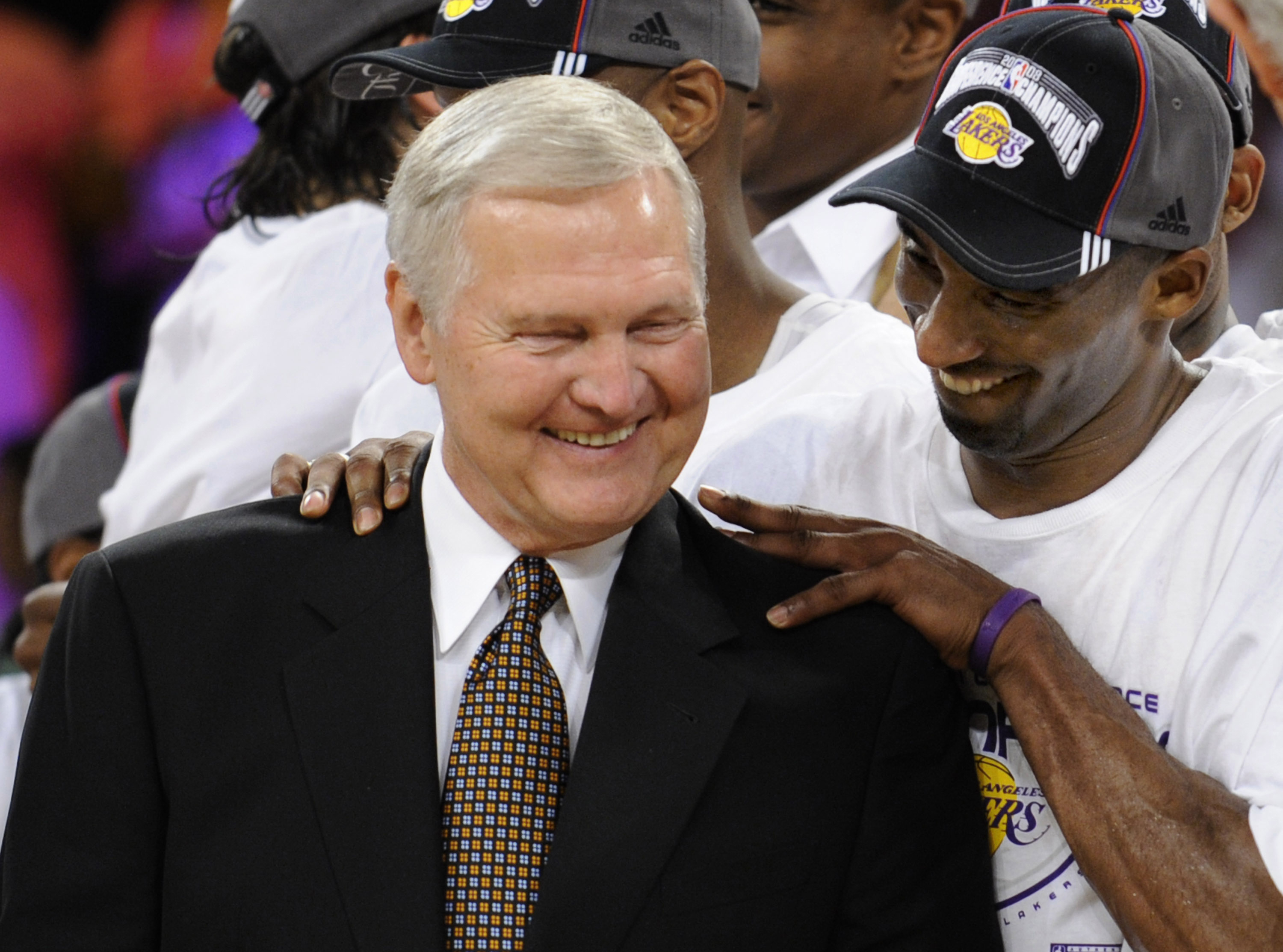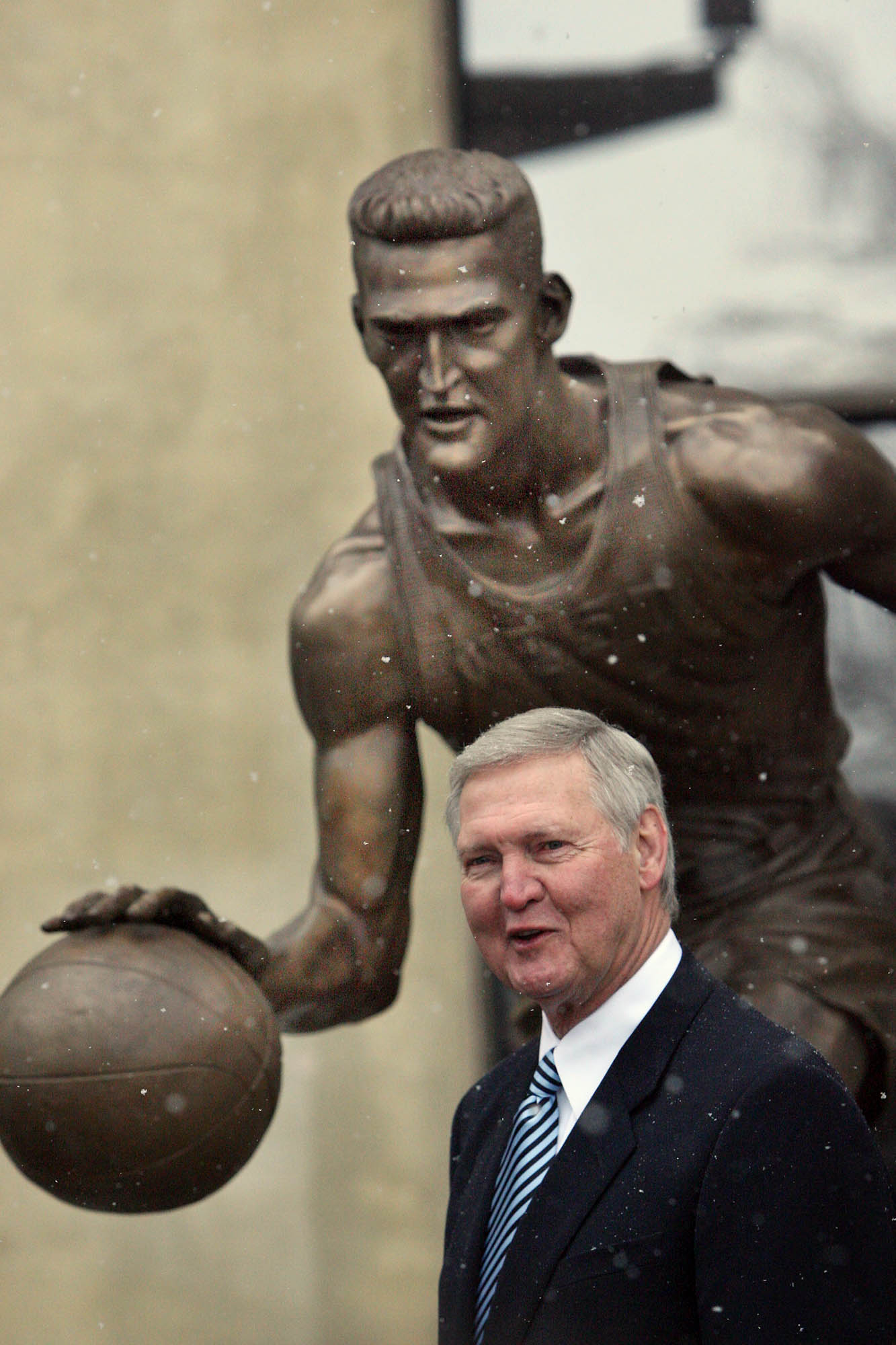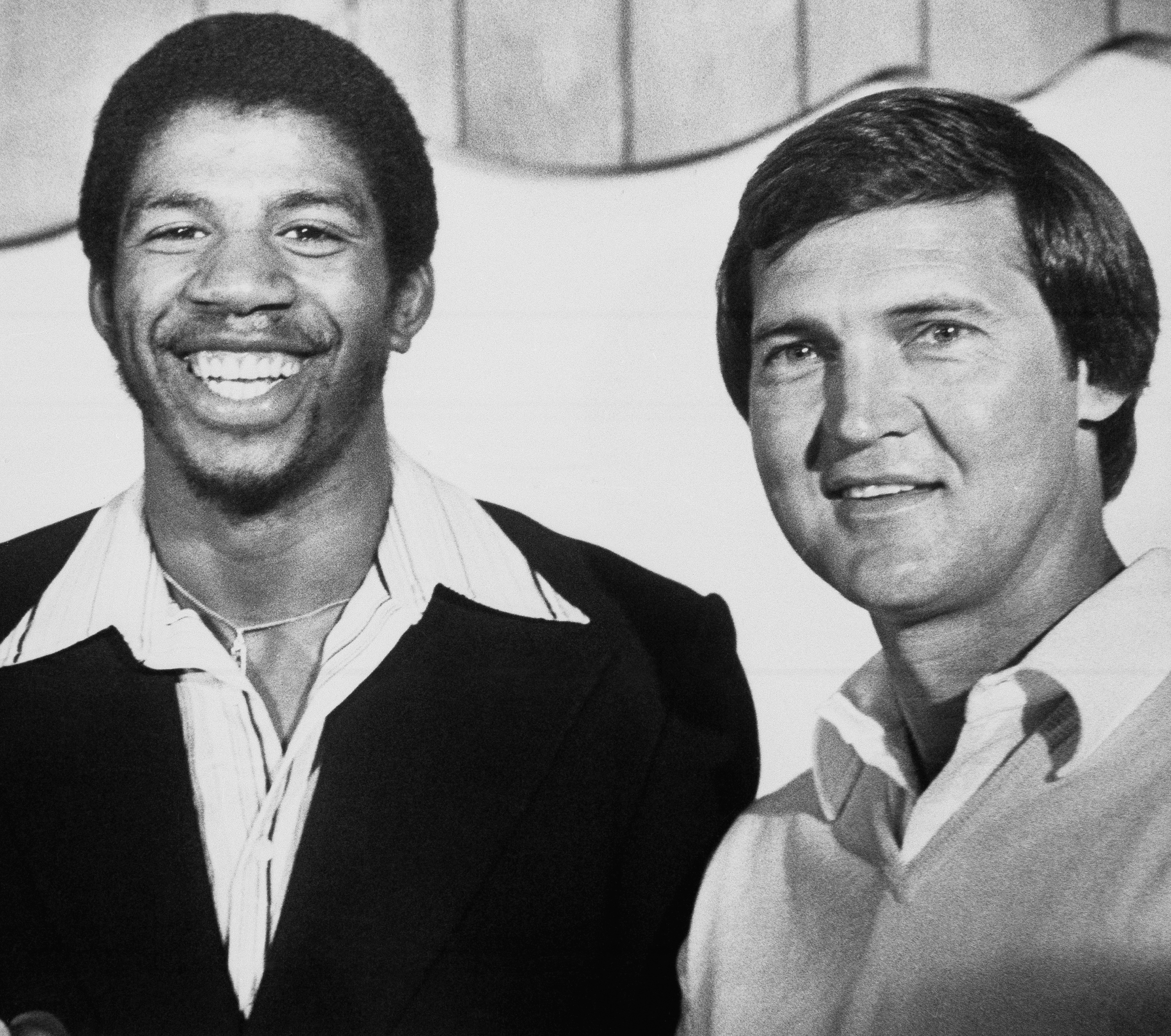
West Virginia legend was one of a kind
Jerry West is the greatest basketball man who ever walked the planet. I am not sure that’s even an arguable point, all things considered.
Notice I didn’t write that he was the greatest player of all time, though he was certainly someone who is in the conversation among the top 10.
I also didn’t write that he was the greatest executive, although given that he helped build eight teams that won NBA titles and a host of others that made deep playoff runs, he is certainly in that discussion, too.
And his tenure as a coach of the Los Angeles Lakers lasted only three seasons, so he would never be mentioned as the greatest coach ever. But if you look at what he did, it was actually pretty good, as he made the playoffs in all three seasons and got to the conference finals once.
He won an Olympic gold medal as a player. He was the most outstanding player of the Final Four in 1959 and NBA Finals in 1969 even though his team, in both cases, didn’t win the title. He was named the NBA Executive of the Year twice. He has been inducted three times into Pro Basketball Hall of Fame for various roles, and that is special.
So I’ll write it again: He is the greatest basketball man, and that’s why it is fitting that he is known simply as “The Logo” to anyone who has been paying attention for the past 50 years.
NBA Commissioner Adam Silver issued a statement that really captured what Mr. West meant to the world of basketball. Mr. West wasn’t just in the NBA; he was the NBA in so many ways.
“Jerry West was a basketball genius and a defining figure in our league for more than 60 years,” Mr. Silver wrote. “He distinguished himself not only as an NBA champion and an All-Star in all 14 of his playing seasons, but also as a consummate competitor who embraced the biggest moments.”
There are literally hundreds of stories that establish Mr. West’s basketball genius, his prowess as an executive and his eye for talent. He saw the game in a way that few others have and had incredible vision when he was building teams.
The one that stands out to me is when he was an executive with the Golden State Warriors in 2014 and threatened to resign if the general manager went through with his plans to trade Klay Thompson for Kevin Love. Mr. West’s view of it was simple — Thompson was the perfect Robin to Stephen Curry’s Batman.
The duo combined to win four NBA titles over the next eight years.
“To me, the perfect player — and he wasn’t as far along in his career when this trade had been talked about — the perfect player for Steph was Klay,” Mr. West said in an interview. “He never seeks the spotlight. He just plays the game. And he has gotten better and better, and frankly, he’s one of the most underrated players in the league who gets not as much love as he should get.”
Mr. West was basketball, which is why it is such a sad day for the community to learn that he died Wednesday at the age of 86. I don’t care who you root for; you should be a fan of Mr. West and understand the impact he had on basketball.
The saddest part of losing someone like Mr. West is the realization that there will never be another like him. Similar sentiments were written about the late Bill Walton last week, and it is true because he was one of a kind. But so was Mr. West. And Mr. West, like Walton, gave all he had to the sport of basketball in various ways.
About the only good thing that comes when a legend dies is that hundreds of people tell stories about that person, ways they impacted others, ways they impacted their profession and, in Mr. West’s case, ways he has impacted an entire state.
A favorite of mine came back when I was a young reporter for the Post-Gazette and tasked with writing a story about Sandy Stephens shortly after he died in 2000. Stephens was a two-sport superstar athlete from Uniontown who, in 1960, led Minnesota to the national title and became the first Black quarterback to be named an All-American.
One of the stories that continued to be told among the people I interviewed was about these legendary pickup basketball games that would take place at one of the playgrounds in Uniontown.
The games involved Stephens, some of the Munsey brothers and other top Uniontown athletes versus a group of players from the Morgantown area, including some West Virginia players like Mr. West and Rod Thorn.
The games were allegedly played at a level higher than many college games, and Mr. West became known for his fiery competitiveness and for pushing the intensity of the games to another level. He was also known to be gracious and humble when the games weren’t going on.
I had the honor of interviewing Mr. West three times, and I was always struck by exactly that — a gentleman on the surface with a clear, burning intensity underneath. He was quiet when he talked but loud in what he said, and while he was always approachable, he gave the vibe of a man you just didn’t want to mess with.
I have often said that there is no greater name to come from the state of West Virginia than Mr. West’s, and I have yet to find anyone come close to refuting it. That was something special about him — he never forgot where he was from and always made it clear he was proud to be a West Virginian. One of his five sons, Jonnie, director of basketball operations for the Golden State Warriors, followed in his father’s footsteps and played basketball at WVU.
You probably didn’t read much about the millions Mr. West donated to West Virginia University, the money he helped raise for hospitals and other such endeavors around the state. And it wasn’t because he didn’t do those things — he did and was always very generous with both his time and money. It was because he preferred to do those things as anonymously as possible.
That’s just who he was — humble and generous but focused on being great at everything he got involved in.
And I think what adds to his legend is his story. He was born into poverty in a tiny rural town — Chelyan, W.Va., population 773 — the youngest of six and afraid of an abusive father who worked in the coal mines. From there, he rose to basketball stardom first at West Virginia then in the NBA.
It is inspiring because he wasn’t someone born into luxury or born into a basketball family. He was a self-made superstar who never let his circumstances hold him back. That’s why I always say Mr. West is not only the greatest basketball man who ever lived, but he is also Exhibit A of a man who lived the American dream.
We use the word “legend” probably a little too much, but in this case, that word probably doesn’t go far enough to describe Mr. West and the life that he lived. Rest in peace to a great one — perhaps the great one.
Paul Zeise: pzeise@post-gazette.com and @paulzeise on X
